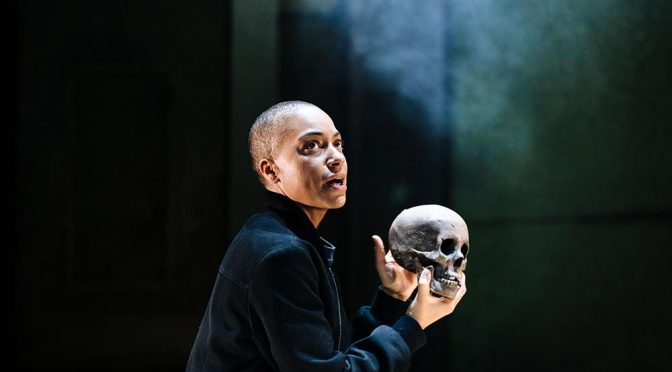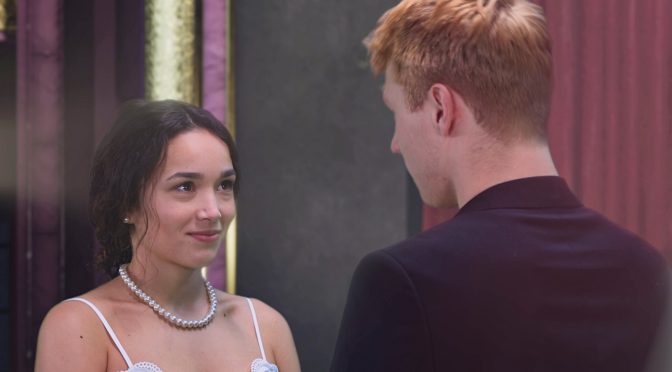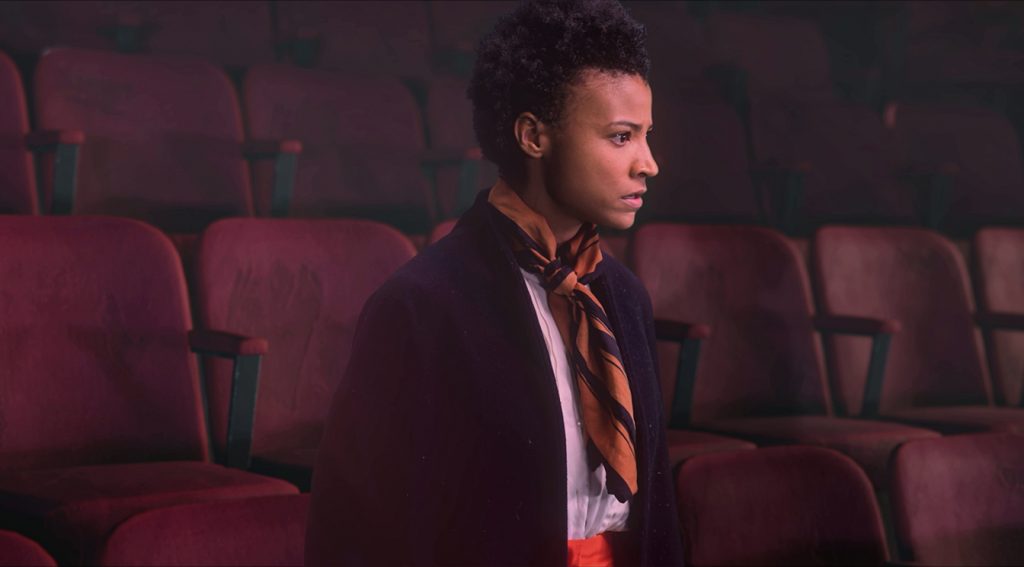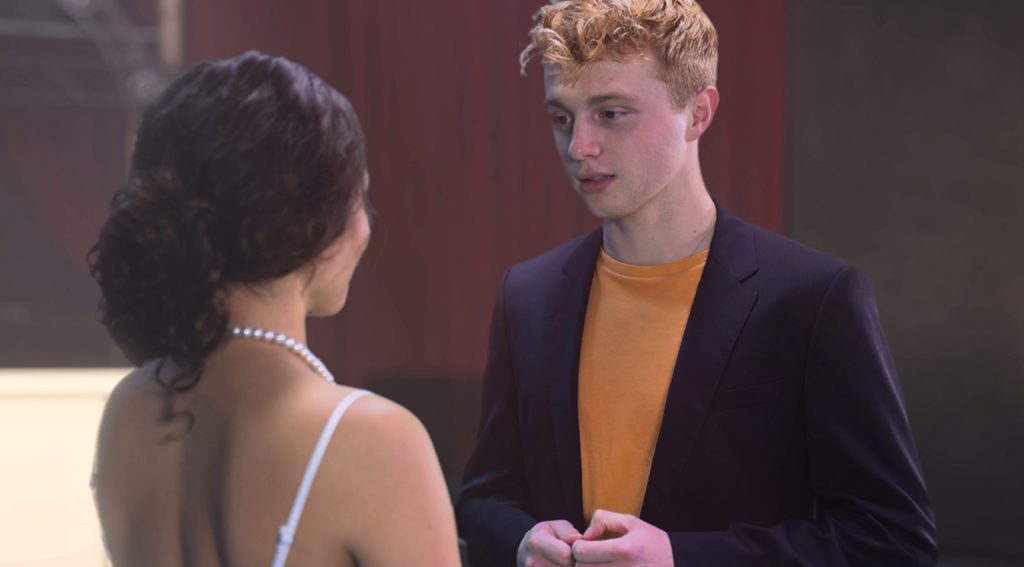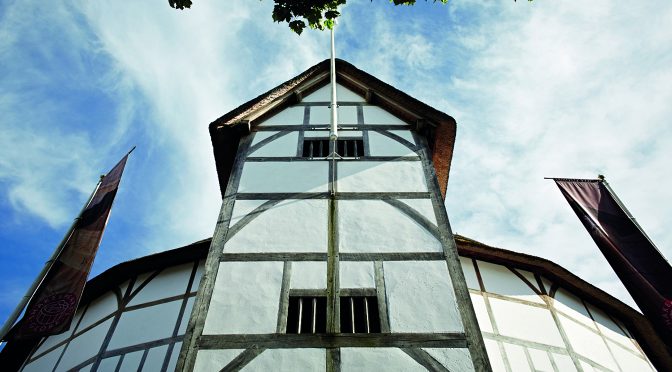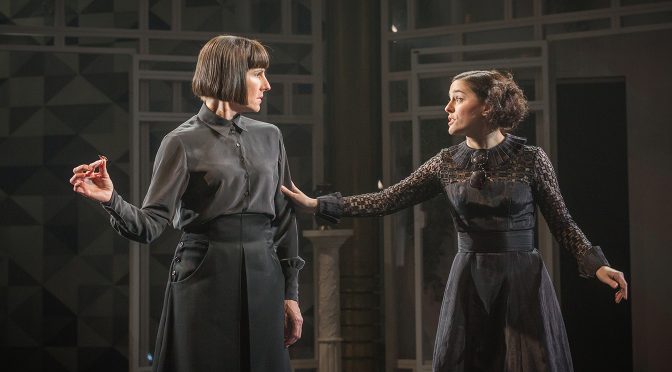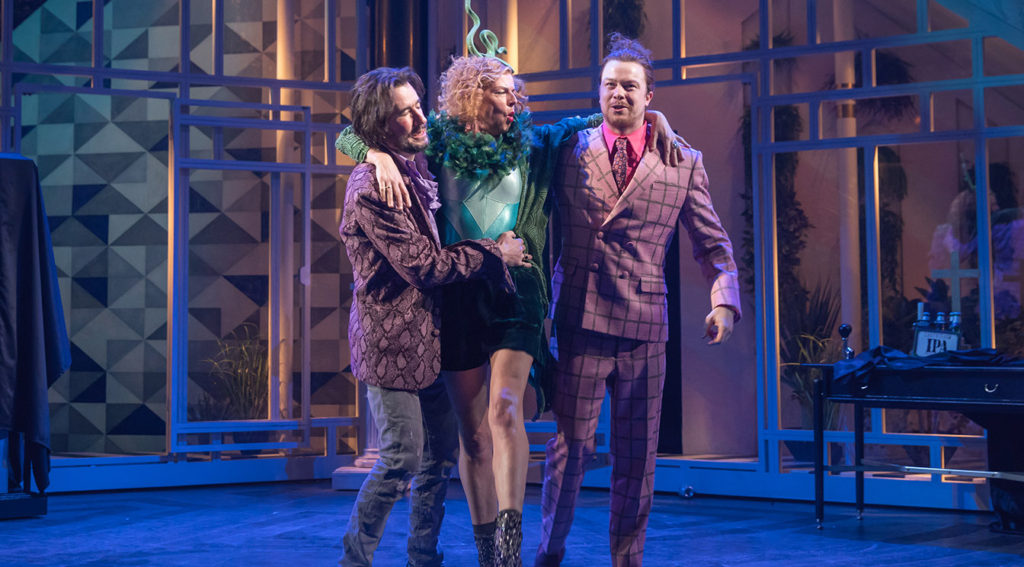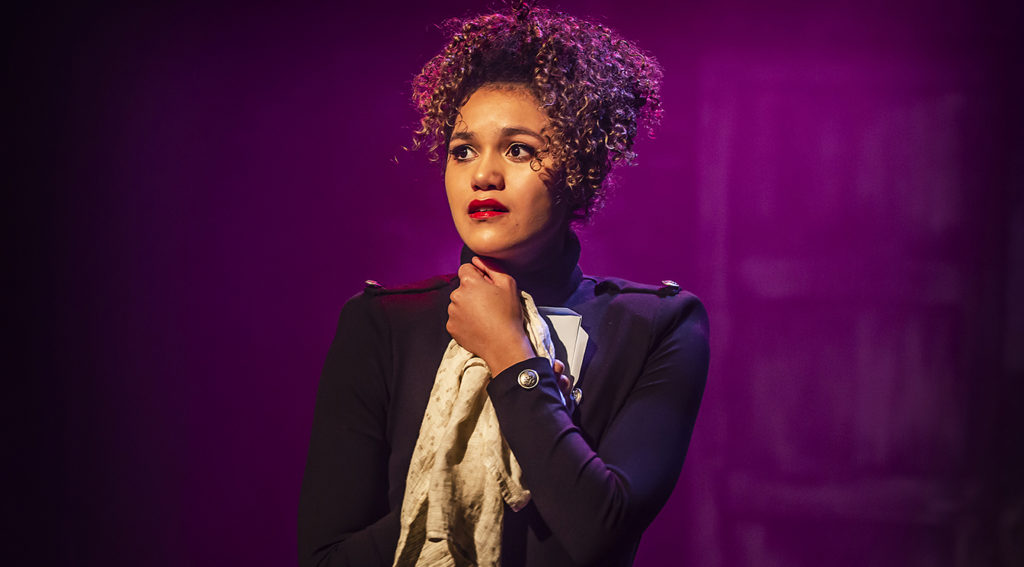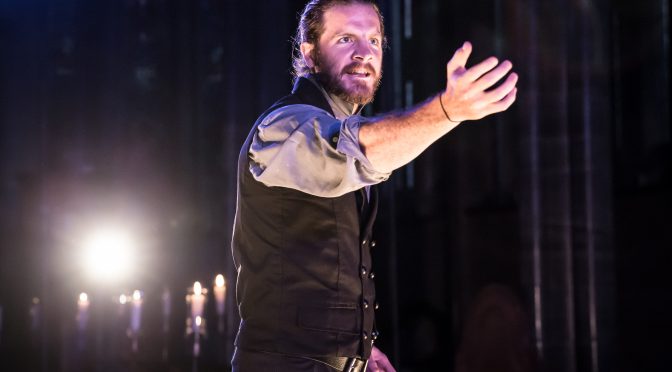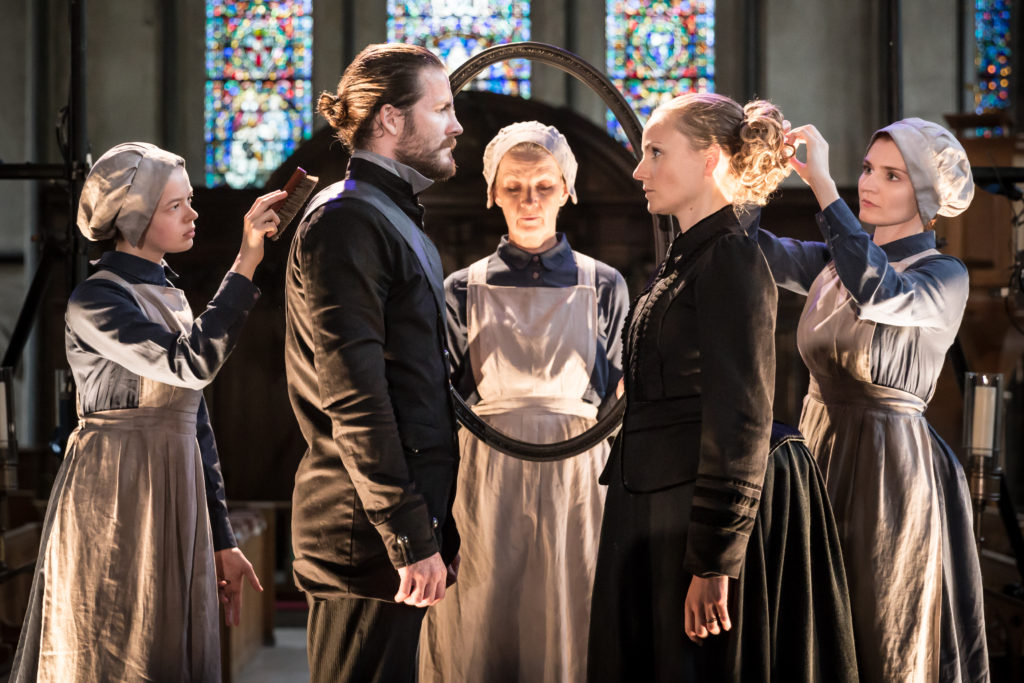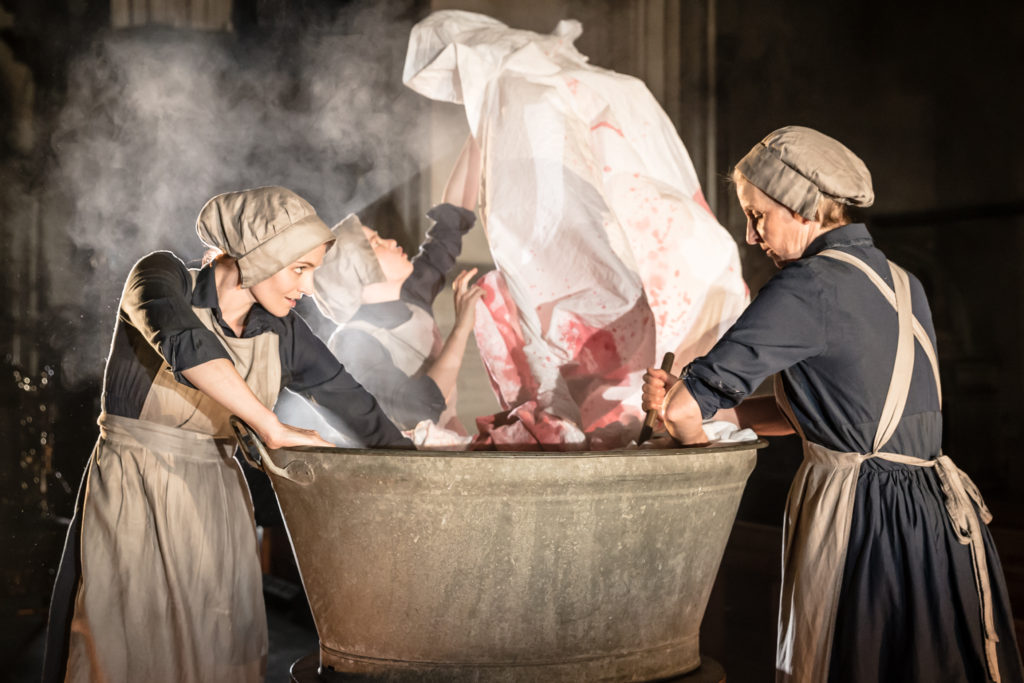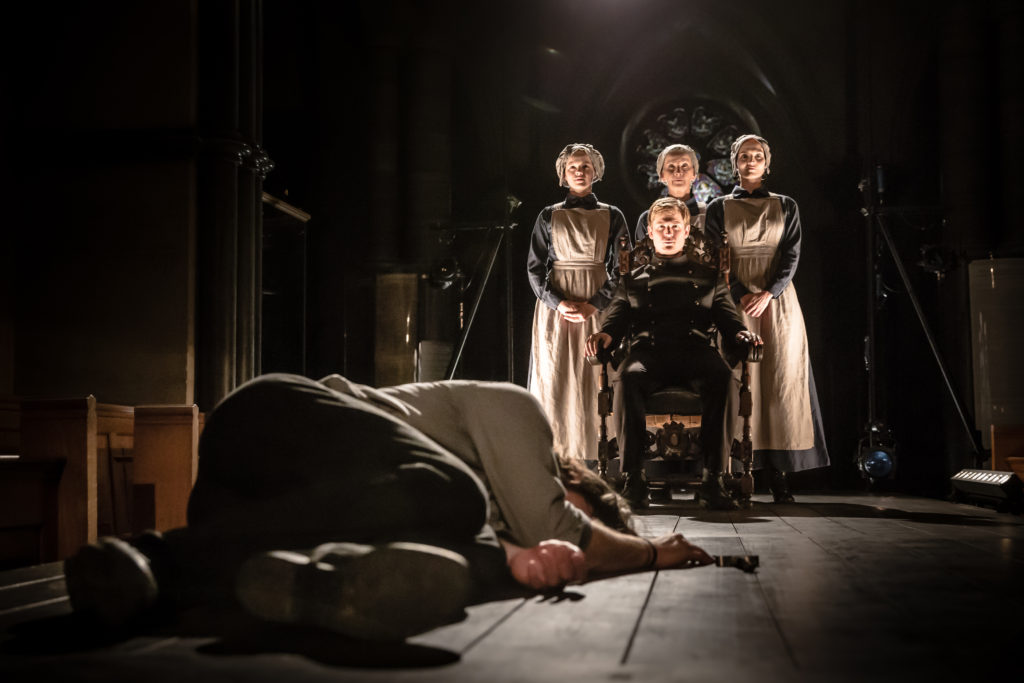The star casting of Cush Jumbo in the title role of Shakespeare’s tragedy does not disappoint. One of the finest Hamlets I’ve seen, Jumbo gives a stirring performance of clarity, considerable humour and intelligence. This is the philosopher prince, keen to debate and discuss – a wit with a love of words.
In case you’re wondering, Jumbo plays Hamlet as a man (there’s no change of gender in the text). It’s how convincing she is as a swaggering youth that surprises, balancing bravado with insecurity just like many a teenage boy. The humour is excellently handled. Let’s be honest, not all the jokes in Hamlet work – some need a little extra help – and Jumbo seems to know exactly when to provide this.
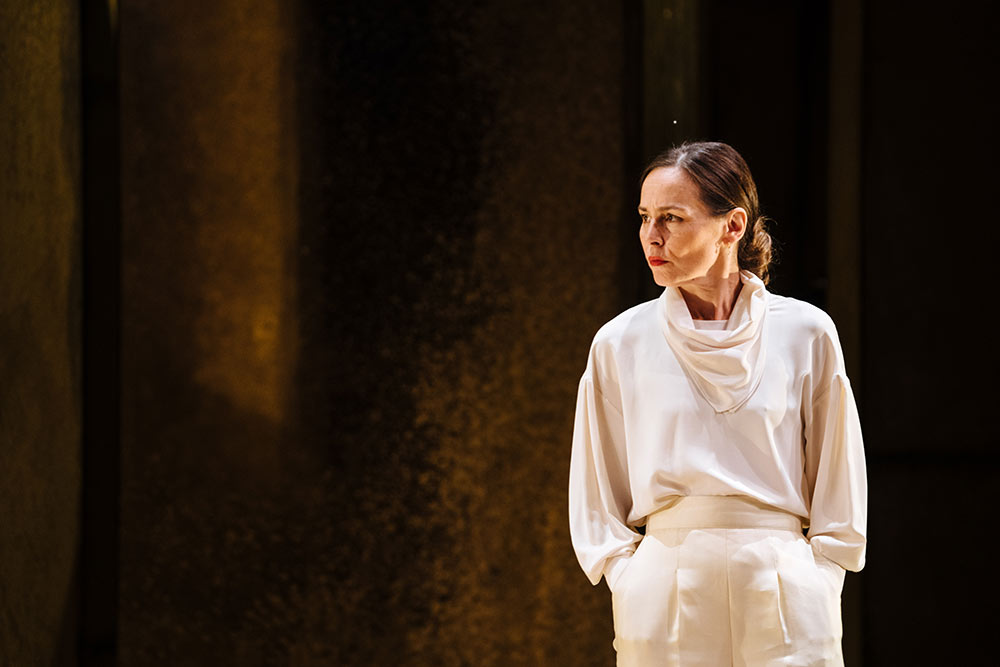
Surprisingly, beyond casting a woman in the lead, director Greg Hersov’s commendable production ends up conservative, in the sense that it is restrained. Firstly, some performances are strikingly muted. Adrian Dunbar’s Claudius is a forceful study in minimalism. Incredibly understated, he barely raises his voice. The performance is all the more powerful for its control. The same praise can be given to Tara Fitzgerald’s Gertrude. Her delivery of Ophelia’s death, and even her own death, are remarkably flat. The royal couple are so repressed they are frightening.
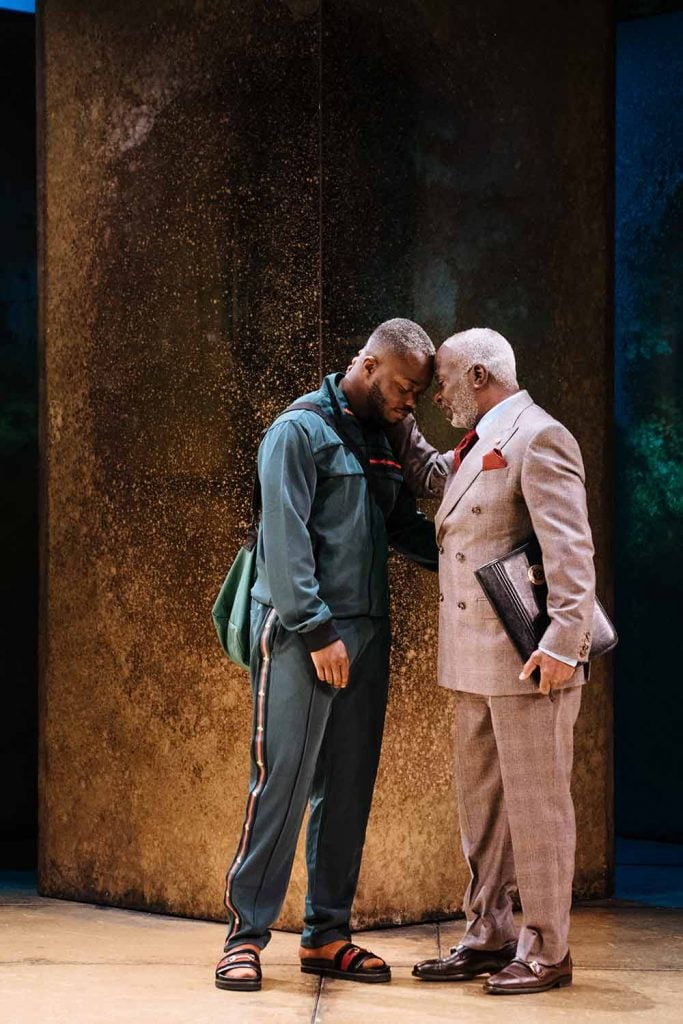
As a contrast, Laertes and Ophelia carry much of the burden of emotion in the play. Hersov reminds us that Hamlet is the story of two families. Along with Joseph Marcell’s appealing Polonius, Norah Lopez Holden and Jonathan Ajayi create the sense of a family unit with remarkable speed and efficiency.
This Hamlet is an austere affair, from Anna Fleischle’s minimalist design to the sparse modern touches. There’s an edit, too – a bold one – as Fortinbras is excised. It’s all to focus on how cerebral both character and play are: this is a Hamlet for thinkers.
Plotters, too, of course. There’s Hamlet’s procrastination – but note how Jumbo carefully lays out thoughts. Hersov emphasises what a bunch of thinkers this court contains. Claudius doesn’t really try to pray; he’s working out why he can’t. And the scene of his plotting with Laertes is a proper sit-down meeting.
The production is a move away from those that have emphasised performance and acting. The travelling players suffer a little as a result and action is minimalised. But, as an interpretation focusing on argument and discussion, Hersov starts a debate about the play that this excellent production wins.
Until 13 November 2021
www.youngvic.org
Photos by Helen Murray

